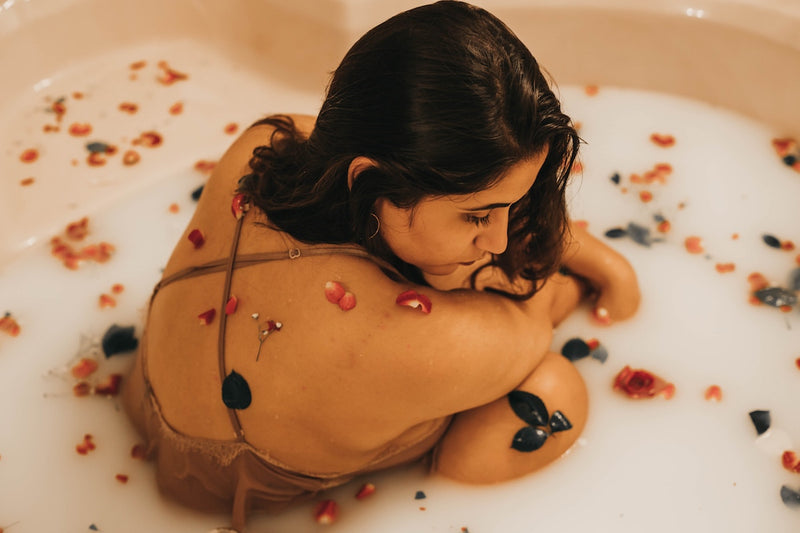Become’s ten tips for managing muscle aches and joint pain

If you’re finding it hard to get out of bed in the morning due to feeling achy and stiff, or waking in the night with back pain, you may just put it down to getting a bit older. But there might be a chance that your joint pain or sore back is actually a symptom of the menopause. In fact, joint pain in the menopause is so common it has been dubbed ‘menopausal arthritis’. Luckily, there are lots of things to try that will soothe your aches and have you back on your feet in no time.
Why does the menopause cause joint pain?
Many women may not associate joint pain with the menopause, so recognising your symptoms can sometimes be hard. But we know that from the age of around 45, when your oestrogen levels start dropping, fluctuating hormone levels can cause your joints to start aching and become inflamed. The back, knees and hips are the most common places for it to strike, due to these being the most high-impact areas of the body, but it can also affect the ankles, hands, neck and shoulders.
The pain level will vary from person to person, but typical symptoms include feeling stiff in the morning, hurting a bit more than usual after exercise and a feeling that your joints are hot and swollen.
What can help with menopausal joint pain?
Waking up in pain may make you feel anxious and distressed, especially if it’s the first time that you’ve experienced your body hurting in this way. But the good news is that a few simple lifestyle tweaks can help in getting you back to your best again.
Staying hydrated: Drinking water can help to keep joints lubricated. If you’re also suffering from hot flushes or night sweats, it may mean that you become dehydrated, so make sure to at least have the recommended amount of six to eight glasses a day.
Looking at your diet: Eating a healthy and balanced diet is essential for keeping your joints healthy and the right choices can also help to reduce inflammation. Carrying extra weight puts you at increased risk of developing joint and muscle pain and can also exacerbate any existing problems. If you can, try to include fish oils, fruit, vegetables, nuts and seeds so that you are getting a range of essential vitamins and nutrients. Otherwise, you could try a vitamin supplement – calcium, magnesium and vitamin D can all help with maintaining healthy bones and muscles.
Trying some gentle exercise: You may not feel like it, but a bit of regular exercise will help to keep your joints moving and healthy. As well as stretching, other low-impact activities, such as swimming, yoga or walking, might also help. Choose what you like best or take along a friend, so it’s enjoyable rather than a chore. Many people credit yoga and Tai Chi for helping specifically with joint pain and flexibility. Take a look at the British Yoga Wheel or the Taoist.org website to find a course or a class near you.
Getting enough sleep or having a nap: A good sleeping posture will help your joints and muscles to relax and restore themselves overnight. Make sure you’re giving your head and neck the support they need by choosing the right kind of pillow. Depending on your sleep position, a pillow placed underneath or between your legs can also help. Either way, a good night’s sleep is important to recharge your body and your mind. If you’re not getting enough sleep, it may be that some days you might not feel like doing much, but this might be your body’s way of telling you that it needs a bit of extra rest. If you are experiencing a flare up, don’t panic, but take a bit of time out or a nap during the day to let your body heal.
Trying a heat pad or taking a hot bath: Applying some heat from a pad or relaxing into a warm bath can really help to loosen tight joints and will help soothe your body as well as your mind. Add your favourite essential oil for a true spa-like experience.
Wearing comfortable, supportive clothing: It’s definitely worth having a proper bra fitting to check that the underwiring and straps are offering the correct support and not putting extra strain on your back. Here at Become, we truly believe in the benefits of wearing comfortable clothes – especially when you’re experiencing bothersome menopausal symptoms. Become’s range of menopause clothing has been specifically created with patent-pending Anti-Flush Technology™ to help with hot flushes and night sweats, which will help you have a cool and comfortable day, or a good night’s sleep.
Trying a topical cream: There are a huge range of anti-inflammatory and cooling creams, ointments and lotions available in your local health store or pharmacy that can help to bring you some relief. Some popular natural ingredients to look for are ginger, eucalyptus, aloe vera and turmeric, which are anti-inflammatory and can be massaged onto the affected area. Always check the label first, especially if you are prone to allergies.
Booking in with a physiotherapist, osteopath or chiropractor: Maintaining good posture is an important part of keeping healthy, particularly if you spend a lot of time sitting at a desk. If you are particularly prone to back problems or are suffering from neck or knee pain, it might be worth looking to see if there is a physiotherapist, sports massage therapist, osteopath or chiropractor nearby who can offer help with realigning the spine or work on particularly troublesome areas. When done by a qualified therapist, it can really help to ease the sore parts of your body. To find a professional therapist near you, either ask at your local GP or check out a reputable organisation, such as the General Osteopathic Council, the British Chiropractic Association, or the Federation of Holistic Therapists.
Looking at alternative remedies: Evidence has shown that some herbs and spices appear to stimulate anti-inflammatory effects in the body, so you may wish to try a natural supplement to help with the pain. Some popular options include anti-inflammatory and analgesic herbs, such as cat’s claw, licorice and turmeric, but do speak to your GP first to check that they are the right option for you.
Talking to your GP: If you are still experiencing strong symptoms and are finding nothing is helping, have a chat to your doctor about what else is available, as they may be able to offer more advice and other treatments or medication if required.
We hope we’ve given you a few ideas to help if you are suffering from joint pain and sore muscles, and we hope one of them brings you relief. If you’ve found a magic solution that’s worked, or have any other tips for easing discomfort and pain, then do let us know in the comments below.
More Posts
-
Tips for a Calmer, ...
The festive season is a time for joy and connection, but it can also disrupt routines and feel overwhelming, particularly during (peri)menopause. ...
Read More -
Managing Hot Flashe...
This article was contributed by Maryon Stewart BEM, widely recognized as a pioneer of the "Natural Menopause Movement." Maryon empowers women to na...
Read More -
Cool Holiday Gift G...
This holiday season, give the gift of cool comfort to the hot women in your life. Become's versatile Anti-Flush™ styles make great gifts! Designed...
Read More







Comments
0 Comments
Leave a Comment